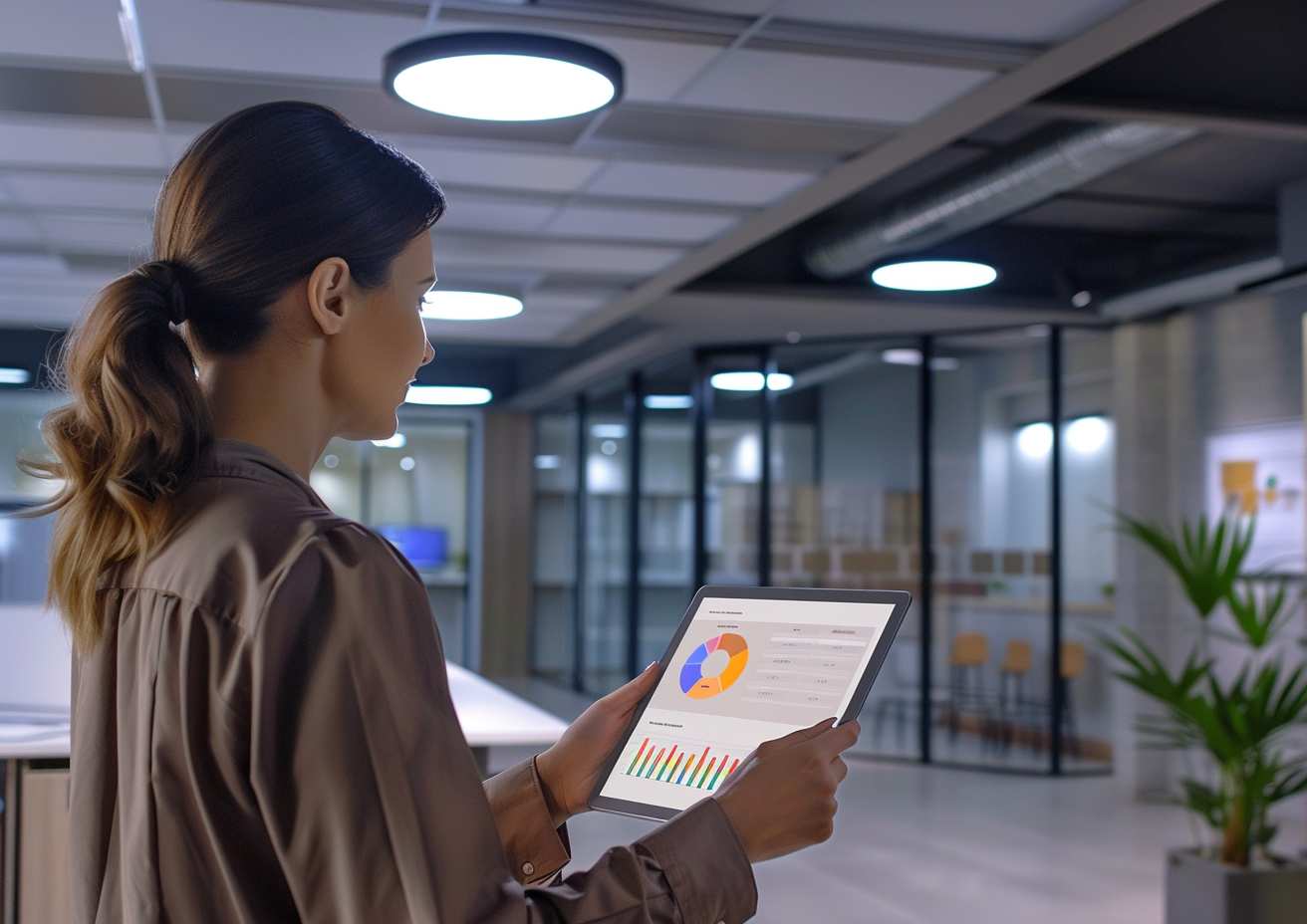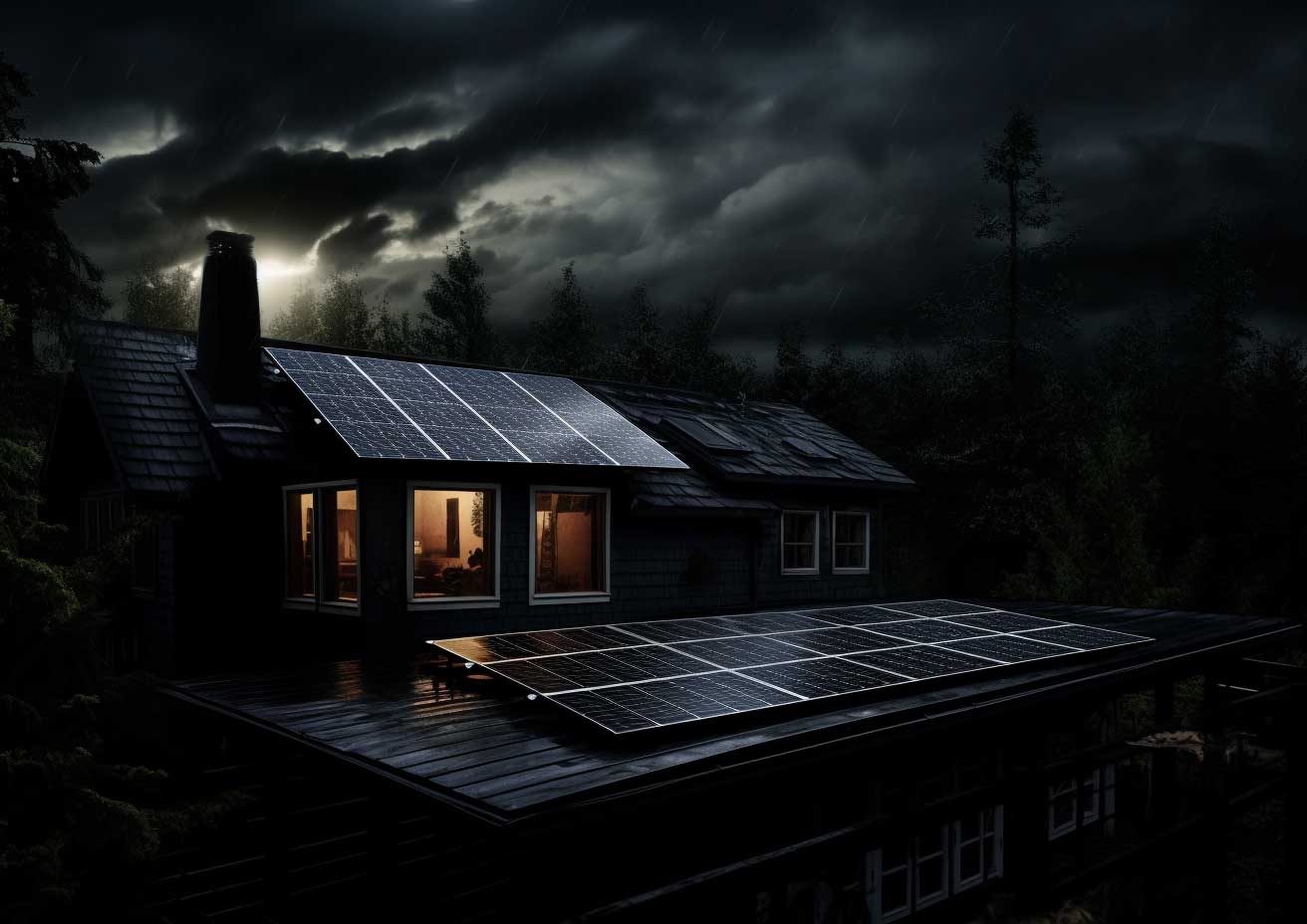Solar energy is the most abundant and powerful renewable energy on our planet. That’s why it’s no wonder home solar has grown in popularity over the years. If you’re interested in going solar or just curious to learn more about harnessing solar power it can be hard to figure out facts from fiction. That’s why we’ve put together this simple breakdown of the pros and cons of solar energy.
What are the pros and cons of solar energy?
Solar Panel Pros
- Renewable energy
- Proven technology
- Long lifespan
- Low maintenance costs
- Reduced electricity bills
- Solar Incentives
- Work in diverse weather and climates
- Reduced carbon footprint
- Increased property value
- Energy independence from the grid
Solar Panel Cons
- High initial costs
- Do not work at night
- Weather dependent
- Permanent and cannot move with you
- Cannot be installed in all homes
- Installation is complicated
Benefits of Solar Panels
Renewable energy – Solar energy is the most abundant renewable energy source on earth. It is available to anyone around the world. Some states have more sunny days than others but solar is easily accessible and it doesn’t require much to generate electricity from solar power.
Solar energy will not run out in your lifetime and we should have it for another 10 billion years when scientists say it will “die” or burn out
Proven technology – The world’s first solar photovoltaic (PV) cell was invented in 1839. Space exploration helped cement the viability of solar technology with the NASA launch of Nimbus1, a meteorological satellite in 1964. Solar cell technology was used for space exploration through the late 1900s and continues today. In the 1970s, there was a push to develop solar cell technology for use in commercial and residential applications due to the energy crises of the time. Today, PV products are growing at a rapid rate and the technology is widely accessible to homes and businesses.
Long lifespan – Solar panels are extremely durable and are made to last for at least two decades. Most solar manufacturers offer warranties of 20 years or more on their solar panels. 20 years is a long time especially if you consider other technology in your home and their projected lifespans.
Low maintenance cost – Solar panels are relatively easy to maintain and don’t require much maintenance except for periodic cleaning. Cleanings should also be done after major weather events like a hailstorm or snowstorm. Cleanings can be done by yourself or by a professional solar panel cleaning service. You can even opt for an automatic cleaning system to make things easier.
Reduced electricity bills – A solar PV system will save you money on your electricity costs since you’ll be generating electricity of your own. How much you can save will depend on several factors including how big your solar energy system is, how many hours of sun you receive per day, and how much your monthly electricity bill is.
Solar incentives – The federal government, state agencies, and local organizations like utilities offer some of the most robust financial incentives for solar installations. You can stack incentives from different entities to save even more. Incentives include rebates and tax credits. Some solar rebates can cover up to 100% of installation costs. You may be surprised by just how much you can save.
WattLogic has a whole team of incentives specialists dedicated to finding which incentives you can apply for and will even apply for them on your behalf. Find out more here.
Work in diverse weather and climates – Solar panels are built to withstand extreme weather, including high heat temperatures, hail, and snow. Extreme weather conditions will decrease solar panel efficiency but are unlikely to damage solar panels if they are well maintained.
Reduced carbon footprint – One of the biggest reasons why homeowners go solar outside of the financial draw is to reduce their carbon footprint. Solar energy is a clean energy source. It is sustainable energy. Using solar power helps minimize a person’s use of fossil fuel-sourced energy and their production of greenhouse gas and carbon emissions. Homeowners who go solar can feel good about making a positive impact on the environment and climate change.
Increased property value – Solar panels increase your home value no matter where you live. According to Zillow research, homes with solar systems sold for 4.1% more on average than comparable homes without rooftop solar panels. Zillow says that translates to an additional $9, 274 for a median-valued home.
Energy independence from the grid – If a solar energy system is paired with energy storage a home can be off-grid. With a battery storage system, energy can be stored for later use during peak-demand hours, at night when solar panels aren’t generating power, or during power outages.
Disadvantages of solar panels
High initial costs – A solar panel installation often has a large upfront cost, but there are many ways to avoid having to spend a lot at one time. As mentioned in the solar energy pros section, many organizations want to support the growth of solar and offer solar incentives that can save you big.
At the same time, solar installers, like WattLogic, offer solar as a service payment options. With these types of payment plans, you can avoid large upfront costs and maintenance and repair costs. Instead, you’ll pay a small monthly subscription fee to have access to solar energy and still be able to offset energy costs with the savings you see from the solar electricity you generate.
Do not work at night – Solar panels do not work at night but that doesn’t mean you can’t use the solar energy you generate during the day at night. You would just need to install a solar battery with your solar PV panels to be able to continue to use solar energy when the sun sets.
Weather dependent – During cloudy, rainy, or snowy days the efficiency of solar panels drops. A solar PV system will still be able to generate electricity but not much. This is another reason why a solar system paired with energy storage is the best option for most homeowners.
Permanent and cannot move with you – A solar installation is permanent and cannot be relocated once installed. If you move you would have to install solar panels at your new residence. The good news is your home value increases with a solar PV installation.
Cannot be installed in all homes – Solar panels cannot be installed in every home. Some homes don’t have the right roof configuration and others are too shaded. Check with your solar installer to see if solar can be installed on your rooftop. WattLogic can help you find the best way to install solar on your home even if that means installing fewer solar panels, yet maximizing energy with the space you have.
Installation is complicated – A solar panel system cannot be a Do-it-Yourself (DIY) type of installation. Solar panel installations are complicated and dangerous if done by a homeowner. A DIY installation would also void any solar panel manufacturer’s 20+ year warranty.
A solar panel installation doesn’t have to be complicated if you connect with the right solar company for your solar installation. Connect with WattLogic to get the solar PV panels that fit your home and the solar benefit or pro you’re looking to take advantage of. WattLogic will provide you with an affordable solar solution you can trust. Go solar today and start reaping the benefits of solar power!




